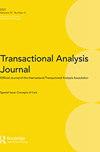Brain Hemisphere Specialization and Neurodiversity as Influencing Factors on the Phenomenology of the Adult Ego State
引用次数: 0
Abstract
Abstract The author reviews the development of Adult ego state theories and their applicability to people of different neurotypes. He examines progress in the field of brain hemisphere research and highlights perceptual differences between the right and left brain hemispheres, which actuate the Adult ego state. Applying this research to how the Adult ego state has been modeled in TA, the author questions whether a single model can capture the full functional capacity of the Adult and challenges a valorization of the Adult ego state. Ways in which current Adult ego state models might be adapted are suggested to accommodate the breadth of neurological variance in practitioners and clients. The author then reconceptualizes Adult ego state functioning to inform readers about how the Adult operates differently across neurotypes.大脑半球特化和神经多样性是成人自我状态现象学的影响因素
摘要 作者回顾了成人自我状态理论的发展及其对不同神经类型人群的适用性。他审视了大脑半球研究领域的进展,并强调了左右脑半球在感知上的差异,而这种差异正是成人自我状态的驱动力。作者将这一研究应用于成人自我状态在 TA 中的建模,质疑单一模型是否能捕捉到成人的全部功能能力,并对成人自我状态的价值化提出质疑。作者提出了调整当前成人自我状态模型的方法,以适应从业者和客户神经系统的广泛差异。然后,作者对成人自我状态功能进行了重新概念化,让读者了解不同神经类型的成人是如何以不同的方式运作的。
本文章由计算机程序翻译,如有差异,请以英文原文为准。
求助全文
约1分钟内获得全文
求助全文
来源期刊

Transactional Analysis Journal
Decision Sciences-Decision Sciences (miscellaneous)
自引率
0.00%
发文量
27
 求助内容:
求助内容: 应助结果提醒方式:
应助结果提醒方式:


